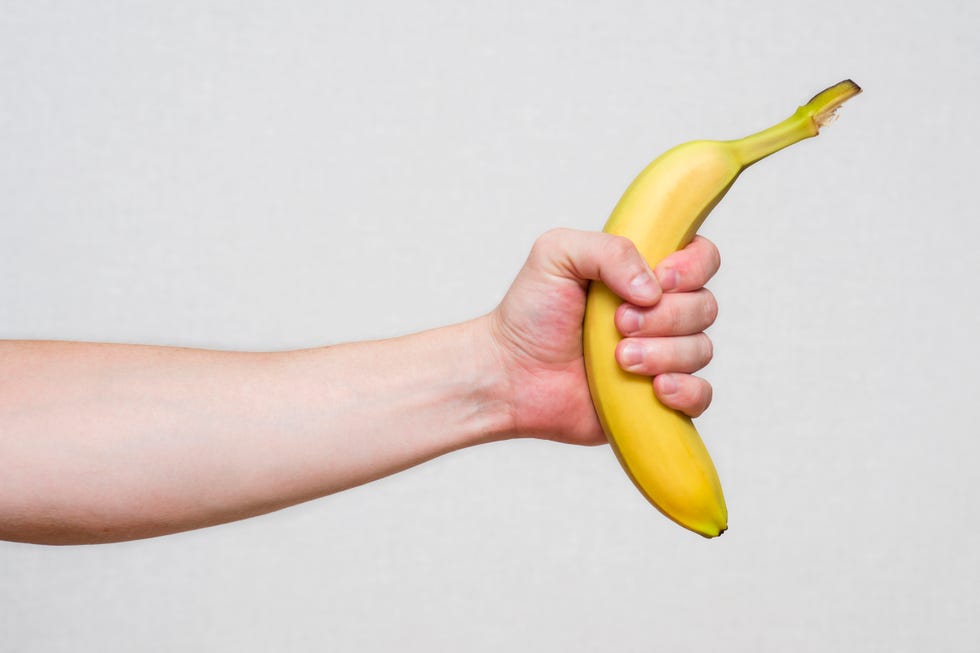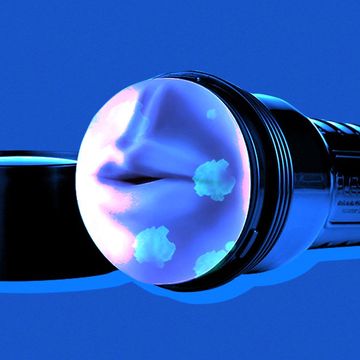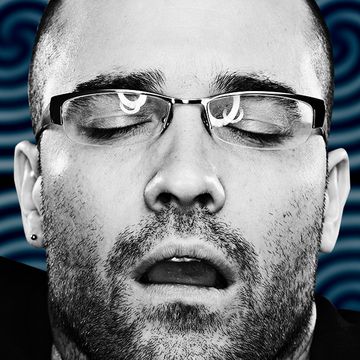THERE'S A GOOD CHANCE you became obsessed with masturbation as soon as you discovered it. The moment after your first orgasm, it's basically all you want to do, ever. And who can blame us? The whole routine feels good, from the moment you get started. And when you finally have that orgasm? Chef’s kiss.
In addition to feeling ridiculously pleasurable, masturbation also has several health benefits, from lowering your risk for certain diseases to boosting your satisfaction during sex with a partner. (In other words, masturbation is great for your physical and emotional health.) That’s why masturbating, even when you’re having partner sex regularly, is still something you should do.
Gloria Brame, Ph.D., a clinical sexologist, believes masturbation should become a regular part of your personal care routine, kind of like brushing your teeth. “Masturbation is part of a healthy sex life,” Brame says. “It’s totally safe and harmless.”
Here are 10 incredible benefits of masturbation.
1) It can help lower your prostate cancer risk.
A 2004 study found that prostate-owners who ejaculated more than 21 times a month reduced their risk of prostate cancer by roughly 33 percent, compared to those who only did the deed four to seven times a month. In 2016, researchers followed up with that same group from 2004 and found that those who ejaculated 8 to 12 times per month reduced their prostate cancer risk by 10 percent.
2) It makes you harder.
As you age, you naturally lose muscle tone—yup, even down there, penis-havers. Regular sex or masturbation works out your pelvic floor muscles to prevent erectile dysfunction and incontinence.
Masturbation "keeps the angle of your dangle perky,” Brame says. That's because the smooth muscle of the penis needs to be enriched with oxygen, which is delivered whenever there's a rush of blood to your member (i.e., when you get an erection). Aim for three to five times a week for rock-solid results.
3) It helps you last longer during sex.
Sometimes penis-owners don't last long in bed simply because they haven't had enough practice, either with a partner or solo. If that’s you, regularly taking yourself to palm prom may help extend your sack sessions. “[Masturbating] an hour before a date will give you more control,” Brame says.
Train yourself by timing how long it takes you to orgasm, says Ava Cadell, Ph.D., founder of the love coaching program Loveology University. If it usually takes two minutes for you to finish solo, shoot for three next time, or count how many strokes you need to get to your happy place.
Practice makes perfect, right?
4) It boosts immunity.
Ejaculation increases levels of the hormone cortisol, according to Jennifer Landa, M.D., a specialist in hormone therapy. Cortisol, which usually gets a bad rap as a havoc-wrecking stress hormone, actually helps regulate and maintain your immune system in small doses.
“Masturbation can produce the right environment for a strengthened immune system,” she said.
Plus, a very small study from 2004 showed that penis-owners had more white blood cells 45 minutes after they had a solo orgasm.
5) It boosts your mood.
Masturbating releases a slew of feel-good neurochemicals like dopamine and oxytocin that lift your spirits, boost your satisfaction, and activate the reward circuits in your brain.
“An orgasm is the biggest non-drug blast of dopamine available,” Brame says. That’s true for everyone, no matter what kind of genitals you’re working with.
6) It can help you fall asleep.
There are many things you can do to improve the quality of your sleep, like eating certain foods (hello, turkey and cheddar cheese). Masturbation can also help: Having an orgasm releases chemicals like prolactin, serotonin, and oxytocin into the brain, all of which have been linked to feelings of happiness and relaxation. So if you find that you're tossing and turning at night, paying a lil' visit to Pornhub might be worth a shot.
7) It can increase your lifespan.
Yup, really: According to a Welsh study of 1,000 men over the course of 20 years, those who had two or more orgasms per week died at half the rate of those who had less than that number of orgasm per month.
8) It can improve your skin.
Orgasm causes increased blood flow to the skin, which makes your blood vessels open up; for some people, this can result in slightly rosy cheeks, or what's better known as the post-sex glow. What's even better? The oxytocin that's released with orgasm can reduce inflammation, making zits and rashes less noticeable.
9) It helps you get to know your own body better.
Sure, you might think that you're pretty well-acquainted with your body, particularly if you started masturbating at a younger age. But it's always helpful to try new things and give yourself a refresher course on what your body likes—and what it doesn't. (If you want tips, check out these masturbation techniques.) Getting to know your own body also helps you communicate your likes and dislikes to partners, resulting in better, more satisfying sex for everyone involved.
10) It improves heart health.
Contrary to the popular belief that rigorous sex can up your risk of a heart attack or stroke, regular orgasms can actually help protect you against cardiovascular disease. A report from the Massachusetts Aging Study found that men who had sex one or fewer times per month were 45% more likely to die of cardiovascular disease than those who had two or more orgasms per week. This study only looked at orgasms from partnered sex, but it doesn’t seem too far-fetched to assume that the benefits would extend to solo time. After all, an orgasm is an orgasm, whether you’re with a lover or your favorite Fleshlight.
All of these benefits have probably convinced you to take matters into your own hands, but you might be wondering: Does masturbation come with any downsides?
Here are 3 potential drawbacks to masturbation (don’t worry—they’re all fixable).
1) You can hurt yourself.
Masturbation is usually harmless, but it is possible to hurt yourself if you’re going too hard or for too long. “Injuries can occur when the person masturbating pushes beyond their body's signals,” explains sexologist Elyssa Helfer, LMFT, CST. “Feeling numbness, tingling, burning, itching, or soreness are all signs that it may be time to stop the activity and give your body a break.” Helfer also warns that if you use sex toys during solo time, you should make sure those toys are clean and—if you’ll be penetrating yourself—appropriately-sized for your body.
2) You can give yourself “death grip syndrome.”
Sex advice columnist and podcast host Dan Savage coined the term “death grip syndrome” to describe the decreased sensitivity some penis-owners experience when they’ve been stroking with too much force. According to a 2015 study, using too much pressure during masturbation can affect your ability to orgasm during partnered sex. Plus, getting used to an aggressively tight grip can set you up for a penile injury.
Fortunately, most people can train their bodies out of the “death grip” state by practicing lighter stroking for a while (yep, even if it doesn’t make you come). If that doesn’t work, talk to your doctor—underlying health issues could be the cause of your penis’ reduced sensitivity.
3) You might feel ashamed.
If you come from a religion, culture, or family that demonizes self-pleasure, you might experience some guilt after rubbing one out. It’s possible to work through those negative feelings, but the process might take some time.
“Seeking out accurate information is key,” Helfer notes. “Learning from quality sex educators, reading books that are backed by research, and building a social community with sex-positive folks is an excellent way to begin the journey to empowerment. If the shame is deeply rooted, working with a certified sex therapist can also be a great way to process those challenging feelings.”
How much masturbation is too much masturbation?
If you love giving yourself a hand, that’s great—but can you have too much of a good thing? Masturbation frequency varies from person to person, and there’s no “right” or “wrong” amount of masturbation. That said, if your jerking off routine is causing you distress or if it’s interfering with necessary tasks, it might be time to reassess your habits.
“When it comes to compulsive masturbation, it is not necessarily the number of times that someone masturbates that can impact them—it’s when, how, and why,” Helfer says. “For example, someone who works from home and is able to masturbate privately on their breaks as a means of stress relief can feel perfectly comfortable racking up those numbers. On the other hand, someone who is excusing themselves from work meetings to masturbate in a public restroom is another story; this could put them at serious risk of work, social, and even legal issues.”
The only person who knows whether or not you’re masturbating “too much” is you. Pay attention to how you’re feeling. If you’re hurting yourself mentally or physically, seek guidance from a mental health professional who can help you get your solo sex life back on track.














